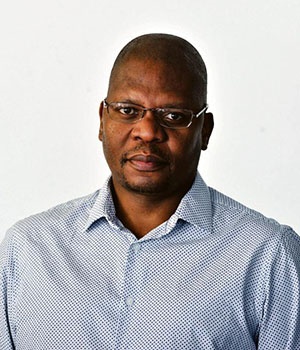
At a time when the nations officially began preparing for the fifth democratic elections, the country has been burning.
Instead of celebrating this beautiful thing called democracy, the thing that we so many have died and gone to prison for, South Africans seem to be rejecting democracy as a legitimate way of getting their voices heard. They are resorting to the weapon that they knew worked best in the pre-democratic phase: fire.
On our campuses students- supposedly an enlightened segment of society -have been burning, ransacking and destroying at will. In Masakona in Limpopo villagers burnt a a school and a shop in bid to drive home their opposition to being incorporated into the Vhembe District Municipality.
In Isithebe in KwaZulu Natal, factories and other property were razed to the crowd by residents who were angry about service delivery and the allegedly problematic manner in which local government elections candidates were being selected.
In Pretoria West residents of Gomorrah informal settlement shut the Dassport tunnel for a days protestors set up burning barricades. Burnt schools and stoned cars. (On the subject of that name: We know what the people of Sodom did because the dictionary tells us but does anyone know what did the people of Gomorrah did? And why did they not get their own word like the people of Sodom?). In the picturesque tourist Mecca called Sabie, life came to a standstill as the fires raged.
The other week the Sasria revealed that claims related to the #Feesmustfall protests now stood at R92-million. In Zandspruit, Johannesburg, residents burnt business and set up burning barricades on highways and byways. In Folweni in Durban there was a petrol bomb attack on the local police station as pitched battles were fought between locals and enforcement agencies.
There is just violence, violence and more violence. All over the show. Even in sleepy communities which are populated by people who would normally be called amabhari or moegoes there is an incredible militancy. If one were an alien arriving here from Pluto - or a ratings agency guru arriving from New York or London - it would be safe to assume you had landed in a country in the grips of revolution.
Just like in the apartheid days when the urban uprising was labelled “unrest” we have given the current revolt the moniker of serve delivery protests. In this way we have normalised the anti-establishment violence as something that is a part and parcel of our existence. Peak-hour radio updates reports refer “service-delivery protests” in the same breath as the cite dysfunctional traffic lights or broken down vehicles on busy roads.
So normal has the anti-establishment violence become that politicians.
But we do this at our peril. Democracy was supposed to put the need for violence behind us. In the Constitution and in the legislation that gave effect to its clauses, a Roll Royce infrastructure was put in place. The system of representative government- from national to local - was among the best devised anywhere in the world.
On paper it provided for a rock-solid chain of communication between citizens and those who run their affairs. If it worked half as well as it was supposed to work in the design councils and government would be able to respond to concerns much quicker- even in a limited way.
In addition to the governmental architecture, citizens have plenty of avenues through which to vent their grievances, including constitutionally enshrined institutions and various ombud bodies that have been set up through legislation. What’s more most of these avenues can be accessed for little or no money at all.
And if money is required there are plenty of free advisory services and NGOs that ate there to take up the of citizens.
Despite this the people resort to violence. Some suggest that this culture comes from a past when violence was effective in getting the illegitimate apartheid government to listen. They argue that the generation that grew up making Molotov cocktails and burning state property knows no other way to communicate with authority.
The argument further goes that they have inculcated this culture onto the next generation. This argument holds a lot of water in that it is hard work for post-conflict to build normalcy.
But after 22 years of democracy we should have been able to bed down a level of normalcy and empowered citizens to utilise the channels that are available to them. And therein lies the rub.
In the quest to keep the citizens quiet and make sure that they are not bothersome, the authorities willfully disempowered them by making the democratic architecture one big mystery. There has been very little done to keep the citizens know that the local councillor, chief or state entity is not the all-powerful be all.
It has been in the interest of the powerful to have a population that has the knowledge and tools to hold them to account.
But this short-sighted thinking has boomeranged badly as the disempowered citizens have appropriated power to themselves in most unpleasant ways. They have made the abnormal normal. They have made violence their voice.




 Publications
Publications
 Partners
Partners








